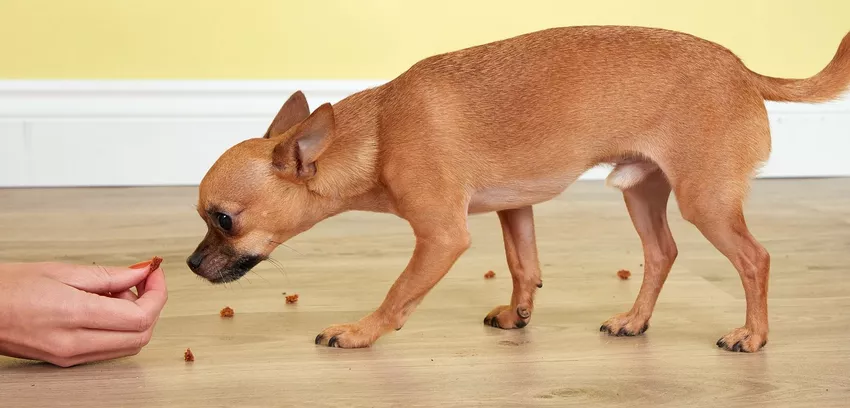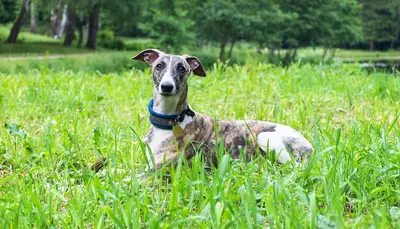Best Food for Small Breeds
- 16 Aug 2023
- 4m read

Pint-sized pups captivate us with their charm, and as devoted pet parents, we want to ensure they lead a life filled with health, happiness, and delicious meals. If you're wondering what defines a small dog breed and what nourishment is best suited to their unique needs, you've come to the right place.
What is a Small Dog Breed?
When it comes to our furry companions, there's a diverse world of dogs out there, varying in sizes, shapes, and temperaments. Small dog breeds, those lovable little companions, have captured the hearts of many pet owners.
But what exactly defines a small dog breed?
Small dog breeds are generally characterised by their petite stature and lighter weight. They can be as delicate as a teacup Chihuahua or as sturdy as a Dachshund. These tiny wonders usually weigh 22 pounds or less, making them the perfect cuddle buddies for those with limited living space or a soft spot for lap dogs.
Small Dog Breeds
Small dog breeds come in a delightful array of shapes and personalities, making them an ideal choice for various types of families and lifestyles. Let's explore some of these endearing small breeds:
Chihuahua
The Chihuahua, known for its big personality in a tiny body, is a loyal and sassy companion.
Pomeranian
With its fluffy coat and charming demeanour, the Pomeranian is a lively and spirited addition to any household.
Yorkshire Terrier
Yorkies are known for their long, silky fur and a strong sense of curiosity.
Dachshund
These elongated pups are playful and confident, making them popular with families.
Shih Tzu
Shih Tzus are gentle, affectionate dogs with a magnificent flowing coat.
French Bulldog
Known for their distinctive bat-like ears and affectionate nature, French Bulldogs are a beloved choice among small dog lovers.
What to Feed a Small Dog
Just like their larger counterparts, small dogs deserve a diet that keeps them healthy, happy, and full of energy. What you feed your small breed companion plays a crucial role in their overall well-being. Here are some key considerations for feeding small dogs:
Protein
Small dogs have higher metabolic rates and require ample protein to maintain their energy levels and muscle mass. Look for high-quality protein sources in their food.
Nutrient balance
Ensure that your small dog's food is nutritionally balanced, providing all the essential vitamins and minerals they need.
Portion control
Small breeds are prone to weight gain if overfed. Pay attention to portion sizes to prevent obesity and related health issues.
Food texture
Smaller dogs may prefer food with a texture that's easier for their small mouths to manage. Wet or semi-moist dog food can be a good option.
Allergies and sensitivities
Some small dogs are more prone to allergies and food sensitivities. Be mindful of their specific dietary needs.
Butternut Box is Perfect for Small Breeds
Just as your small dog is a cherished part of your family, Butternut Box considers them a part of their family too which is why our fresh food is perfect for them:
Fresh ingredients
Butternut Box prides itself on using fresh, human-quality ingredients. Small dogs deserve the best, and Butternut Box delivers that through meals prepared with the same quality and care as the food we put on our own plates.
Gently cooked
The food is gently cooked to perfection, preserving the nutrients and flavours that small dogs crave. It's a culinary experience they'll eagerly anticipate with each meal.
No additives, preservatives, or fillers
Butternut Box understands that small dogs have delicate systems, and their meals are free from additives, preservatives, and fillers. Your dog gets pure nutrition, just like nature intended.
Tailored to your dog
Butternut Box creates personalised meal plans based on your small dog's unique needs. From their size to their age and activity level, each meal is crafted to ensure they get the best nutrition possible.
Frozen to lock in goodness
To keep the food as fresh as the day it's made, Butternut Box freezes it immediately. This locking in of goodness means your small dog receives the full benefits of the fresh ingredients.
Incorporating Butternut Box into your small dog's diet ensures they receive the highest quality nutrition, customised to their needs. It's like having a personal chef create gourmet meals for your furry friend, and it's just as healthy as it is delicious.




